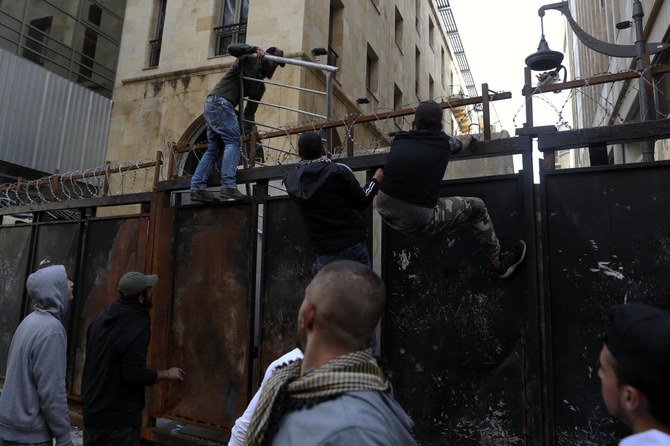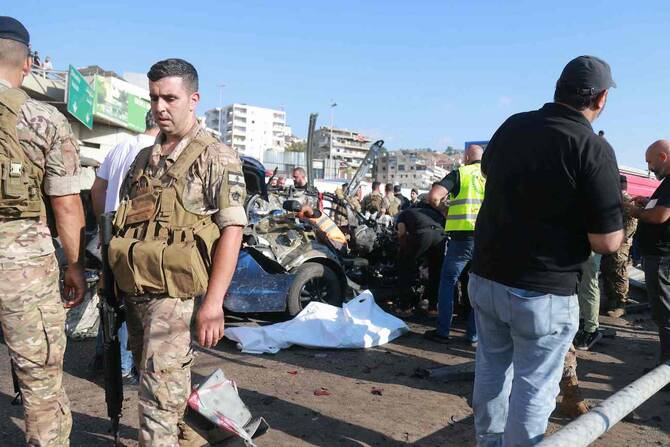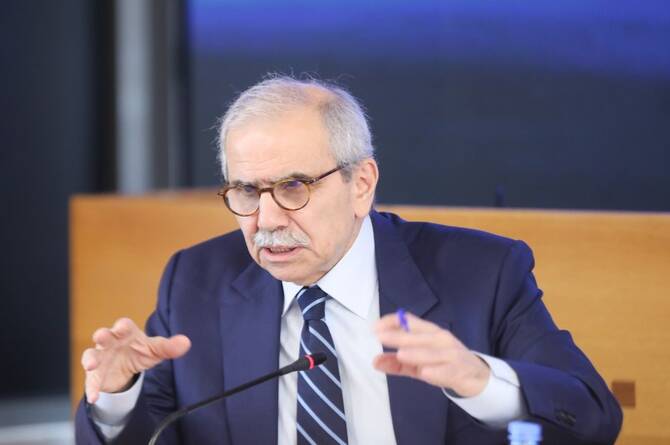Najia Houssari
BEIRUT: Lebanese supermarkets halted sales and businesses closed their doors on Saturday as the country’s embattled currency slumped to a record low on the black market.
With the dollar exchange rate exceeding 12,000 Lebanese pounds, panic erupted on the streets as shopkeepers and major outlets stopped selling goods to avoid incurring losses.
Amid growing alarm at the country’s increasingly precarious state, activists in working-class areas in Mount Lebanon climbed the minarets of mosques and called on people to take to the streets.
A spokesperson for the Oct. 17 revolution said: “We will stay in the squares until the corrupt system falls.”
Hundreds of protesters in Martyrs’ Square in downtown Beirut pounded on metal barriers blocking access to parliament and hurled rocks at security forces manning roadblocks.
Anti-riot personnel launched tear-gas grenades after violent clashes erupted between protesters and security forces.
In the past three days, Lebanon’s currency has endured a roller-coaster ride, rising to 9,000 Lebanese pounds against the dollar before falling to 10,000 Lebanese pounds.
But in a dramatic collapse on Saturday, the Lebanese pound fell from 11,750 to 12,200 against the dollar, with the slump worsening by the hour despite efforts to close online trading platforms.
Economist Louis Hobeika told Arab News: “The strong demand for the dollar is caused by the decline in confidence in the country. People are panicking about the future.”
Hobeika rejected the idea that banks are buying up dollars.
“The dollar trading volume in the Lebanese market does not exceed $2.5 million. The banks want to increase their capital on the request of the Banque du Liban collectively and need $3.5 billion — and this cannot be secured from the Lebanese market.”
Protesters traveled to Martyrs’ Square from different regions, with retired soldiers leading many groups.
The demonstrators raised Lebanese flags, played revolutionary and patriotic songs over loudspeakers, and chanted angry slogans.
A group of protesters near the Banque du Liban joined with families of the victims of the Beirut port explosion demanding that the investigation into the blast be stepped up and not politicized.
Baalbek business owners blocked roads after they closed their stores.
In Sidon, drivers formed roadblocks with their cars, while there were also protests on the streets of Tyre.
In the Bekaa region, some gas stations were demanding 70,000 Lebanese pounds for a can of petrol as fears grew over the state of the fuel market.
George Al-Baraks, a member of the Syndicate of Gas Station Owners, said that “there is no gasoline or diesel crisis.”
He said that distribution “will be rationalized in order to maintain fuel deliveries, in line with the approval of the Banque du Liban to open credits for ships of import companies and oil facilities.”
Panic in Lebanon is growing as the stalemate between President Michel Aoun and Prime Minister-designate Saad Hariri shows no signs of ending.
MP Rola Tabsh Jaroudi told Arab News: “Those who are obstructing the formation of the government must bear the consequences of the chaos in the street.
“Hariri’s position was clear from the beginning, and he has the approval of foreign countries for what he proposed. He will remain committed to forming the government.”
On the Free Patriotic Movement’s calls for Hariri to step down, Tabsh Jaroudi said: “He is the prime minister appointed by the members of parliament, and he will not concede what he proposed, nor will he accept the bargaining that is taking place.”
He added: “People are hungry. It is their right to take to the streets to get their voices heard.”






















